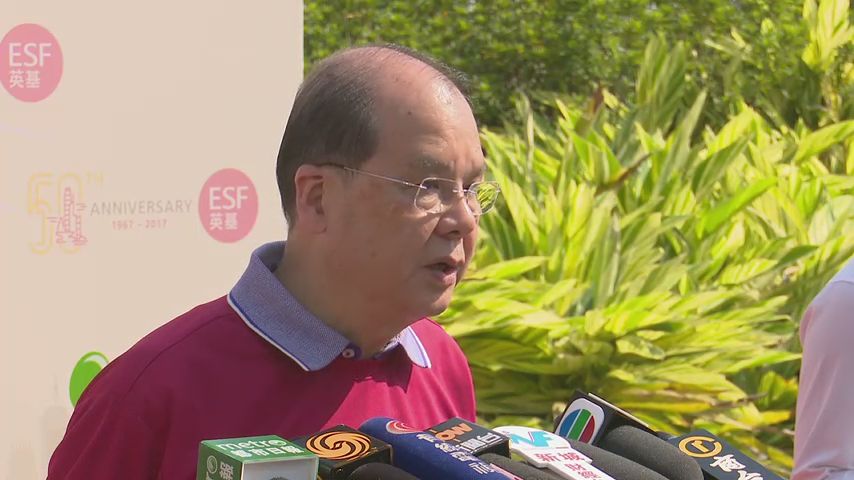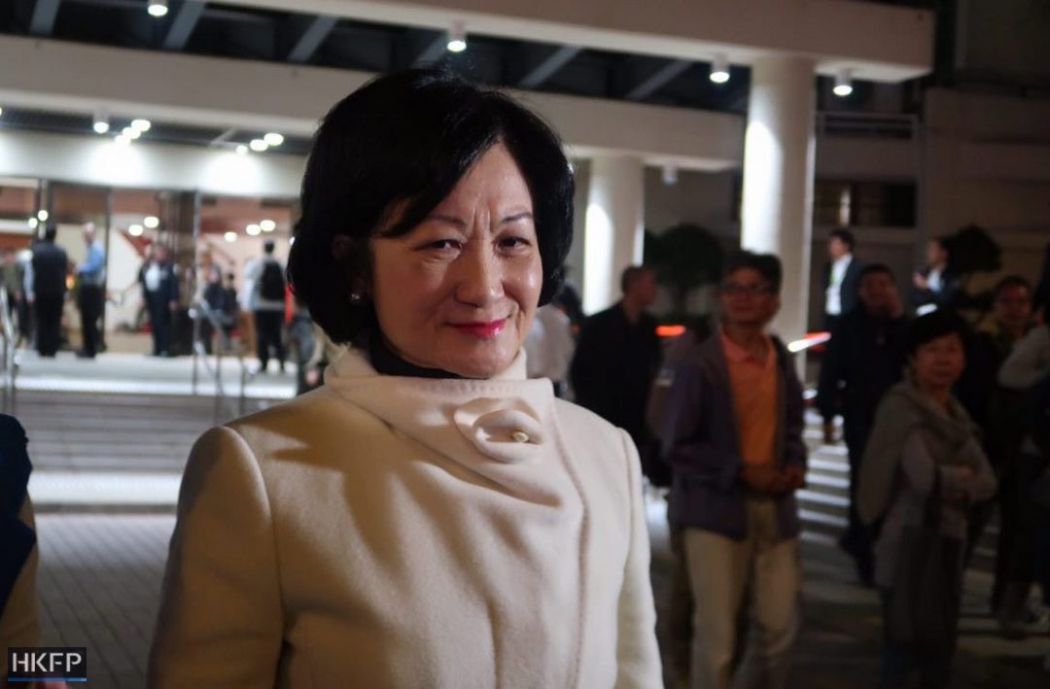The government has denied putting pressure on ex-financial secretary John Tsang after demanding that he declare a new role as a TV programme guest host.
The former chief executive candidate was invited by public broadcaster RTHK to host the new season of Hong Kong Stories. He failed declare it to the Advisory Committee on Post-office Employment of Officials, saying that his work was unpaid and he was not employed. Tsang said the broadcaster had suspended promotions for the show following enquires from the Chief Executive’s Office, sparking concerns about pressure from the government.
When approached by Citizen News, RTHK head Leung Ka-wing said on Sunday that Jessie Ting – permanent secretary of the Chief Executive’s Office – had emailed the broadcaster asking if Tsang was participating in the programme. Leung added that Ting also called him about the declaration system and told him of John Tsang’s failure to declare the work.

“Government departments often remind each other about procedures… it’s very typical,” he said, denying any pressure or issues with promotion because of Ting’s call.
The Chief Executive’s Office said it asked Tsang five times to provide information but was not successful. Chief Secretary Matthew Cheung said on Sunday that “there is no question at all of putting pressure on John.”
“In fact, what’s happening is that the chief executive office is purely seeking factual information on the position that he would assume or he is already assuming, in order to enable the government to make a decision as to whether a case has to be put to the committee concerned for advice,” he said.
“It is purely procedural… Once the information is available, I think we can make a quick decision… fairly, quickly.”

Advisory Committee on Post-office Employment of Officials has no legal powers.
‘Double standards’
It emerged earlier this year that former chief executive Leung Chun-ying did not declare his directorship at two companies until the media revealed the appointments. Leung’s office said they were non-profit companies, and he amended the companies’ articles of association after the declaration to confirm their not-for-profit nature.
Cheung denied there were any double standards.
“Leung fully assisted, he was cooperative, he provided whatever information we needed,” Cheung said. He also denied saying Tsang was uncooperative.
Previously, Tsang also accepted invitations from the University of Hong Kong and Commercial Radio as an unpaid part-time lecturer and guest host respectively. The government asked for information from Tsang on the academic work and he provided it. It was later confirmed that he did not need to declare the role.
The government, meanwhile, did not ask for information about the Commercial Radio role. A government spokesman said the station was a commercial organisation and not accountable to the government, thus it did not make any enquires.

Democratic Party lawmaker Lam Cheuk-ting said the government guidelines do not state that former officials must declare charitable, academic or non-profit work, unlike the requirement for former chief executives.
“The government has repeatedly adopted a double standard targeting John Tsang but leaving Leung Chun-ying alone,” he said.
New People’s Party lawmaker Regina Ip, a former security secretary, said it was better for Tsang to declare all work positions to be safe, as he was a top official holding a lot of sensitive information.
But she said she believed that Tsang will likely avoid talking about the government and it is unlikely there will be any conflict of interest.
“In fact [the system] just requires you to make a notification, it is not particularly rigorous,” she told a Commercial Radio programme on Monday.
Ip said there cannot be any punishment for Tsang, legally speaking. Asked about potential additional clauses for punishment, she said no one would want to be a principal official if the rules were too strict.
